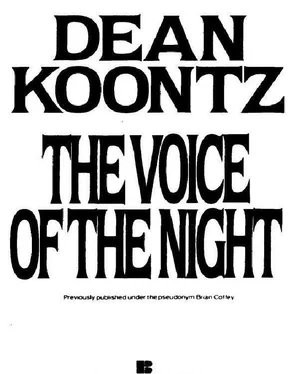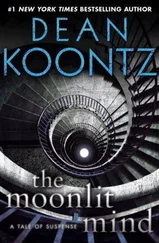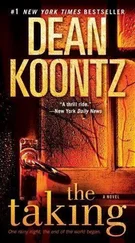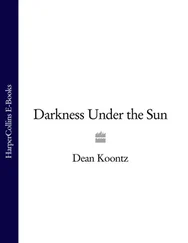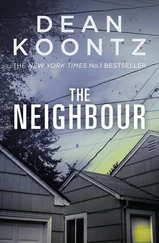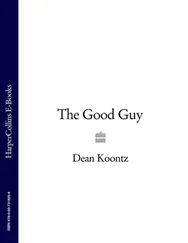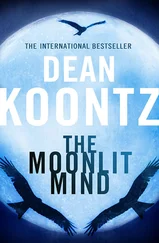One o‘clock.
Where in the hell was his mother?
Tap-tap-tap!
Something at the window.
Tap. Tap-tap. Tap-tap-tap-tap. Tap.
Just a big moth bumping against the glass. That was it. That had to be it. Just a moth.
One-thirty.
He had been spending nearly every night alone. He didn’t mind eating supper by himself. She had to work a lot, and she had every right to date men now that she was single again. But did she have to leave him alone every night at bedtime?
Tap-tap.
The moth again.
Tap-tap-tap.
He tried to tune out the moth and think about Roy. What a guy Roy was. What a great friend. What a truly terrific buddy. Blood brothers. He could still feel the shallow puncture in the palm of his hand; it throbbed faintly. Roy was on his side, there to help, now and forever, always and always, or at least until one of them died. That’s what it meant to be blood brothers. Roy would protect him.
He thought about his best friend, papered over the visions of monsters with images of Roy Borden, blocked out the voice of the night with memories of Roy’s voice, and shortly before two o‘clock he drifted into sleep. But there were nightmares.
The alarm clock woke him at six-thirty.
He got out of bed and pulled open the drapes. For a minute or two he basked in the wan early-morning sunshine, which had no voice and presented no threat.
Twenty minutes later he was showered and dressed.
He walked down the hall to his mother’s room and found the door ajar. He rapped lightly, but there was no response. He pushed the door open a few inches and saw her. She was out cold, lying on her belly, her face turned toward him; the knuckles of her left hand were pressed against her slack mouth. Her eyelids fluttered as if she was dreaming; she breathed shallowly and rhythmically. The sheet had pulled halfway down her body during the night. She appeared to be nude beneath the flimsy covers. Her back was bare, and he could see just a hint of her left breast, an exciting suggestion of fullness where it was squashed against the mattress. He stared at the smooth flesh, hoping she would roll over in her sleep and reveal the entire, soft, white globe.
— She’s your own mother!
But she’s built.
— Close the door.
Maybe she’ll roll over.
— You don’t want to see.
Like hell I don’t. Roll over!
— Close the door.
I want to see her breasts.
— This is disgusting.
Her tits.
— Jeez.
I’d sure like to touch them.
— Are you crazy?
Sneak in and touch ‘em without waking her.
— You’re turning into a pervert. A regular goddamned pervert. You ought to be ashamed.
Blushing, he quietly closed the door. His hands were cold and damp with sweat.
He went downstairs and ate breakfast: two cookies and a glass of orange juice.
Although he tried to clear his mind of it, he could think of nothing except Weezy’s bare back and the plump outline of her breast.
“What’s happening to me?” he said aloud.
His father arrived in a white Cadillac at 7:05, and Colin was waiting for him at the curb in front of the house.
The old man slapped him on the shoulder and said, “How ya doin‘, Junior?”
“Okay,” Colin said.
“Ready to catch some big ones?”
“I guess.”
“They’re going to be biting today.”
“They are?”
“That’s the word.”
“From who?”
“From those who know.”
“The fish?”
His father glanced at him. “What?”
“Who are those who know?”
“Charlie and Irv.”
“Who’re they?”
“The guys who run the charter service.”
“Oh.”
Sometimes Colin had difficulty believing that Frank Jacobs was really his father. They were not at all alike. Frank was a big, rangy, rugged man, six-foot-two, a hundred and eighty pounds, with long arms and large, leathery hands. He was an excellent fisherman, a hunter with many trophies, and a highly skilled archer. He was a poker player, a partygoer, a hard drinker but not a drunk, an extrovert, a man’s man. Colin admired some of his father’s qualities; however, there was a great deal that he merely tolerated, and a few things that aroused anger, fear, and even hatred. For one thing, Frank routinely refused to admit to his mistakes, even when proof of them was before his eyes. On those rare occasions when he realized he could not avoid an owning up, he sulked like a spoiled child, as if it were grossly unfair for him to be held responsible for the results of his own errors. He never read books or any magazines other than those published for sportsmen, yet he had an unshakable opinion about everything from the Arab-Israeli situation to the American ballet; and he stubbornly, vociferously defended his uninformed views without ever realizing that he was making a fool of himself. Worst of all, he lost his temper at the slightest provocation but regained his composure only with enormous effort. When he was very angry he behaved like a raging madman: shouting paranoid accusations, screaming, punching, breaking things. He had been in more than a few fist fights. And he was a wife beater.
He also drove too fast and recklessly. During the forty-minute ride south to Ventura, Colin sat straight and stiff, hands fisted at his sides, afraid to look at the road but also afraid not to look. He was amazed when they made it to the marina alive.
The boat was the Erica Lynn. She was large and white and well maintained, but there was an unpleasant odor about her that only Colin seemed to notice-a blend of gasoline fumes and the stench of dead fish.
The charter group was composed of Colin, his father, and nine of his father’s friends. They were all tall, tan, rugged-looking men, just as Frank was, with names like Jack and Rex and Pete and Mike.
As the Erica Lynn cast off, maneuvered out of the harbor, and motored toward the open sea, a breakfast of sorts was served on the deck aft of the pilot’s cabin. They had several thermos bottles filled with bloody marys, two kinds of smoked fish, chopped green onions, slices of melon, and soft rolls.
Colin ate nothing because, as usual, mild seasickness took hold of him the moment the boat moved away from the dock. From experience he knew that he would be all right in an hour or so, but until he got his sea legs, he wasn’t taking any chances with food. He even regretted having eaten the two cookies and orange juice, although that had been an hour ago.
At noon the men ate sausage and chugged beer. Colin nibbled at a roll, drank a Pepsi, and tried to stay out of everyone’s way.
By then it was clear to all of them that Charlie and Irv had been wrong. The fish were not biting.
They had begun the day in pursuit of shallow-water game only a couple of miles from shore, but the shoals had seemed deserted, as if every aquatic citizen in the neighborhood had gone away on vacation. At ten-thirty they had moved farther out, into deeper water, where they rigged for bigger game. But the fish were having none of it.
The combination of high energy, boredom, frustration, and too much liquor created an explosive mood. Colin sensed trouble coming long before the men decided to play their dangerous, violent, and bloody games.
After lunch they trolled in a zigzag pattern-northwest, south, northwest, south-starting ten miles off shore, moving steadily farther out. They cursed the fish that weren’t there and the heat that was. They stripped out of their shirts and trousers, put on swimsuits they’d brought along; the sun darkened their already brown bodies. They told dirty jokes and talked about women as if they were discussing the relative merits of sports cars. Gradually they began to spend more time drinking than watching their lines, chasing shots of whiskey with cold cans of Coors.
Читать дальше
